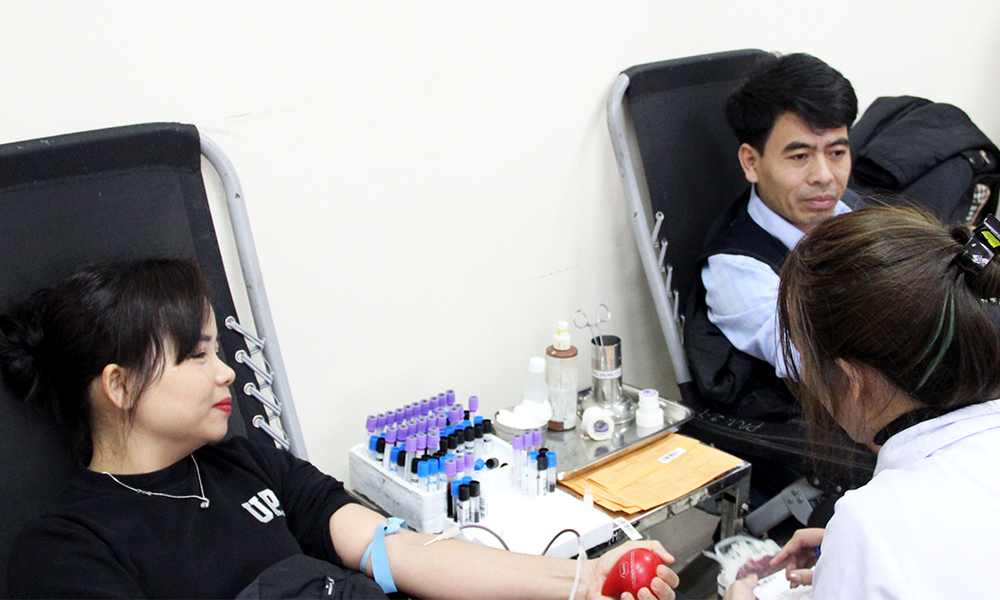Hundreds of trillions of VND and a comprehensive reform
The policy of providing free healthcare for all is not only a humanitarian measure but also a breakthrough in the social security system, reflecting the commitment of the Party and the State to taking care of people’s health.
Recently, General Secretary To Lam directed the study of a proposal for universal free healthcare in the period 2030–2035, with a roadmap aimed at reducing the financial burden of medical expenses on the people.
 |
|
Parents and teachers must proactively prevent hand, foot and mouth disease in children. |
To implement this policy, the Ministry of Health is developing a proposal with two main objectives: to provide free annual health check-ups for every citizen at least once a year; and to implement universal free healthcare in two phases, from 2026 to 2030 and from 2031 to 2035.
According to estimates, with a population of 100 million and an average cost of 250,000 VND per check-up, the necessary budget to ensure that each person receives at least one check-up per year is 25 trillion VND.
In 2020, the total health expenditure was 272.24 trillion VND, of which health insurance accounted for approximately 100 trillion VND. Placing this estimated figure within the broader context of budgetary balance reveals the scale of the challenge this policy presents.
However, the question “Where will we find hundreds of trillions of VND?” is not, in fact, without answers — provided that we rethink the entire financial structure of the healthcare system along the lines of rationalising expenditure and diversifying revenue sources.
Firstly, we must still rely on a solid financial foundation - universal health insurance. Although Vietnam has achieved over 94% health insurance coverage, “coverage” does not necessarily equate to “sufficiency”.
The benefits package does not match the actual costs of modern treatment. The lists of drugs, new techniques, and advanced equipment are not updated regularly.
The revision of the Health Insurance Law in 2024 is a first step, but it is still necessary to restructure the fund, adjust contribution rates based on income rather than base salary, improve the fund’s investment efficiency, and at the same time, expand entitlements in a controlled manner.
Secondly, there is a need to establish a targeted taxation mechanism on products harmful to health (such as tobacco, alcohol, and sugary soft drinks) to supplement the health budget. Many countries have successfully adopted this approach.
Thailand allocates 2% of taxes from alcohol and tobacco to form a community health fund. The Philippines uses up to 85% of tobacco tax revenues for healthcare. Vietnam can move towards establishing a “health fund for a healthier community” on this basis.
Thirdly, resources must be mobilised through socialisation in a systematic and transparent manner. Many enterprises are willing to invest in hospital systems and social security funds if there is a clear legal framework and such investments are guaranteed to be effective, both economically and socially.
Numerous non-profit hospital models in developed countries have shown that socialisation does not equate to commercialisation, but rather represents a way to share the responsibility of developing the healthcare system with society.
Fourthly, the right groups must be prioritised, in keeping with the humanitarian spirit of the policy. Before reaching universal free healthcare, it is possible to follow a phased approach by prioritising the poor, those who have rendered meritorious service to the revolution, veteran officials, the elderly, and residents in remote and disadvantaged areas.
This is not only a financially sound solution but also a reaffirmation of the humanitarian nature and pro-poor orientation of this superior policy that the Party and State are determined to pursue.
Finally, the healthcare system’s governance must be restructured to avoid waste, losses, and scattered investment. A single dong spent at the right time, in the right place, for the right person is worth more than a hundred dong spent incorrectly.
The hospital autonomy mechanism also needs to be adjusted in the direction of transparency, linking responsibility with service quality and financial efficiency.
Universal free healthcare requires a comprehensive reform in finance, legal frameworks, governance, and how society views the right to healthcare.
If we truly regard the health of the people as a national asset, then this “hundreds-of-trillions” investment is entirely worthwhile.
 Bắc giang
Bắc giang













Reader's comments (0)